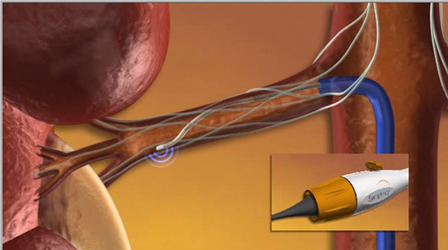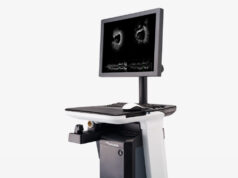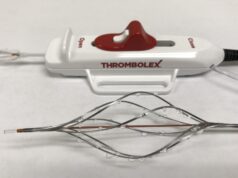
Medtronic’s sham-controlled renal denervation study, SYMPLICITY HTN-3, has failed to meet its primary efficacy endpoint of significantly reducing office blood pressure between baseline and six months in patients with treatment-resistant hypertension and systolic blood pressure of ≥160mmHg.
In the study, 535 patients (at 87 US medical centres) with treatment-resistant hypertension were randomised to one of three groups—two renal denervation groups and one sham procedure group. The primary efficacy endpoint was the change in office blood pressure from baseline to six months and the primary safety endpoint was incidence of major adverse events.
Following the announcement that the study did not meet its primary efficacy endpoint, Medtronic has said it intends to formulate a panel (made up of independent advisors made up of physicians and researchers) who will be asked to make recommendations about the future of the global hypertension clinical trial programme and provide advice on continued physician and patient access to the Symplicity technology in countries where the technology is approved. Pending this panel review, the company intends to:
- Suspend enrolment in the three countries where renal denervation hypertension trials are being conducted for regulatory approvals (SYMPLICITY HTN-4 in the USA, HTN-Japan and HTN-India)
- Begin informing clinical trial sites and investigators, global regulatory bodies, and customers of these findings and decisions
- Continue to ensure patient access to the Symplicity technology at the discretion of their physicians in markets where it is approved
- Continue the Global SYMPLICITY post-market surveillance registry and renal denervation studies evaluating other non-hypertension indications.
George Bakris, co-principal investigator of SYMPLICITY HTN-3 and professor of medicine and director of the ASH Comprehensive Hypertension Center, University of Chicago Medicine, Chicago, USA, calls the trial not meeting its primary efficacy endpoint “disappointing” but adds: “This is the most rigorous renal denervation clinical trial conducted to date, and the first of its kind to include a sham-control group. We look forward to advancing these data into the peer-review process and will submit these findings for presentation and scientific discussion at an upcoming scientific congress.”
In a press statement, Medtronic said that because of the product’s “demonstrated safety profile” (as with previous Symplicity studies, SYMPLICITY HTN-3 met its primary safety endpoint), no specific action is currently indicated for patients who have had the renal denervation procedure with the Symplicity system.
“We are disappointed that the clinical trial failed to meet its primary efficacy endpoint,” says Rick Kuntz, chief medical officer, Medtronic. “We believe this course of action is the most prudent and will help us thoroughly evaluate these findings and determine the appropriate next steps for renal denervation therapy. We would like to thank the patients and investigators for their participation in the trial and their important contribution to the field of hypertension research.”










